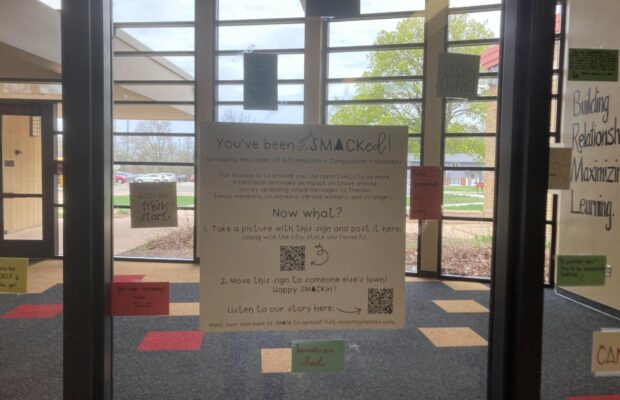Searching the Soundscape: Pushing past the limits of pop charts reveals wide spectrum of experience
Music possesses a special kind of appeal to nearly every human in the world, and it has since the dawn of humanity. Pitches can be arranged in a nearly infinite amount of combinations. These waves of energy are then received by an organ specific to the body (our human ears), and are transmitted as signals in our brains to evoke an emotional response — it is truly an astounding concept.
What is even more astounding is musical taste — the idea that certain sounds, pitches, melodies, rhythms, etc. invoke a response in every individual in a unique way. These sounds may affect some more profoundly, pleasurably, or create any number of specific mental responses depending upon the listener.
A person’s musical taste is defined, obviously, by the content of music that they enjoy and styles of music that they listen to regularly. Currently in the world of music today, on the forefront of popularity is pop-music, including sub-genres of pop-rap and R&B, as well as pop-country styles of music. Trendy influences of the dance and electro realms of music are also present in quite a bit of relevant music today. However, when it comes to pop-music, the explanation is in the name — although it is a fairly eclectic genre — the term is derived from “popular music.”
This music is considered the norm because it appeals to the taste of the masses — it is designed to do so. Many are comfortable and content with this type of music that is easy to listen to, often has a structured and catchy verse-chorus-verse format and contains lyrical messages that are often fun and easy to access. For example, a song about a night out partying and dancing, or possibly a relatable break-up.
Why, then, could there be other genres of music that are so much less popular, yet are still out there, being produced by and listened to by people with ears just like yours and the rest of the world’s? Could there be a dynamic of musical experience and perception that some choose to experience, despite it’s lack of popularity?
The answer is yes. Why listen to the disorienting and obscure vocal samples compiled within an album by The Books when you could simply let “Uptown Funk!” funk you up? You may never know unless you delve into the world of underground and experimental music and experience the personal depth it has to offer.
Imagine, for a moment, the entire spectrum of the human experience and emotion. In fact, take a few moments — it’s a massive, spectacular idea. Now consider every work of music ever produced — yes, ALL of them. Experience and emotion have a unique and incredibly special connection with music. Music itself is the expression of these experiences and emotions. It is a bridge — the origin is the artist and the destination is the listener — a connection formed by expression from one human to another.
Music, to me, is entirely about understanding, empathy and personal connection. Songs are packaged feelings which you can choose to experience. The sounds of “different” kinds of music may instantly turn away many listeners. Often, they may directly compare these sounds with what they hear in popular styles of music. What many fail to do is ask the question, why then do some people enjoy this music? It doesn’t offer the same things that people enjoy about pop-music; however, you can’t expect it to.
The appeal of music sonically depends entirely on your perception of it. For example, if you listen to the album “Bad Vibes” from electro artist Shlohmo — filled with melodic beauty, a dark sense of brooding, jostled by abrasive yet coordinated percussive hitches, undercut with sandpapery patches of ambient fuzz — yet you compare it only with the things you loved about the latest hit single from Katy Perry, you will likely not enjoy this music. However, experiencing the album for what it is in the context of its own style, you may find yourself falling in love with the disorienting dream-like grooves and ambient sounds.
When it comes to underground and experimental music, the music is truly created in the interest of expression for those who listen. There is often no intent from the artist to become successful in the mainstream. In fact, some types of music are created by artists and enjoyed by listeners directly in the interest of counterculture; for example, artists like Death Grips take the clichés of much of modern rap and accentuate them to shocking extremes.
Music that is not focused on mass fan attraction or money attracts fans based solely on musical interest. This results in a much smaller fanbase for a majority of lesser known music styles. However, this allows for the involving of yourself in the fanbase of your favorite music to be a much more personal and unique experience.
If you were to find yourself discovering and enjoying new forms of music, it is safe to say that you have expanded your musical taste. Once you discover things that click with you personally, it may become more difficult to go back and listen to the music that is made to be accessible for the masses. Your taste has now been influenced with an extra edge, tailored to the unique ways that certain musical qualities appeal to you in your own way.
With personal opinions set aside, music listening can be a wonderful experience regardless of whether you’re listening to Lady Gaga or an album from an artist like Animal Collective. You can sing and dance all night almost anywhere to the latest pop music. The hottest music artists have huge influence in the pop-culture world. Non-accessible music, on the other hand, offers a musical experience that allows listeners to explore and develop the true depth of musical taste. Where the curated Hot-100 song list and pop-culture define the taste of the masses, there are countless artists producing music with so much else to offer to whoever will listen. To those who allow it to, music in its entirety can allow for profound enjoyment in understanding the vast glory that is the spectrum of human experience and emotion.









You must be logged in to post a comment Login